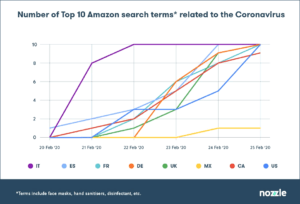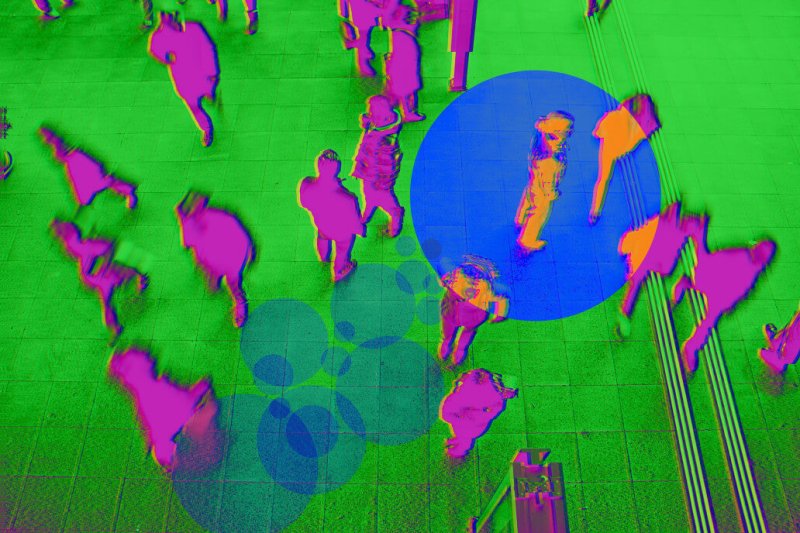When covid-19 hit, we started buying things we’d never bought before. The shift was sudden: the mainstays of Amazon’s top ten—phone cases, phone chargers, Lego—were knocked off the charts in just a few days. Nozzle, a London-based consultancy specializing in algorithmic advertising for Amazon sellers, captured the rapid change in this simple graph.

But they have also affected artificial intelligence, causing hiccups for the algorithms that run behind the scenes in inventory management, fraud detection, marketing, and more. Machine-learning models trained on normal human behavior are now finding that normal has changed, and some are no longer working as they should.
…
According to Pactera Edge, a global AI consultancy, “automation is in tailspin.” Others say they are keeping a cautious eye on automated systems that are just about holding up, stepping in with a manual correction when needed.
What’s clear is that the pandemic has revealed how intertwined our lives are with AI, exposing a delicate codependence in which changes to our behavior change how AI works, and changes to how AI works change our behavior. This is also a reminder that human involvement in automated systems remains key. “You can never sit and forget when you’re in such extraordinary circumstances,” says [Nozzle CEO Rael] Cline.































